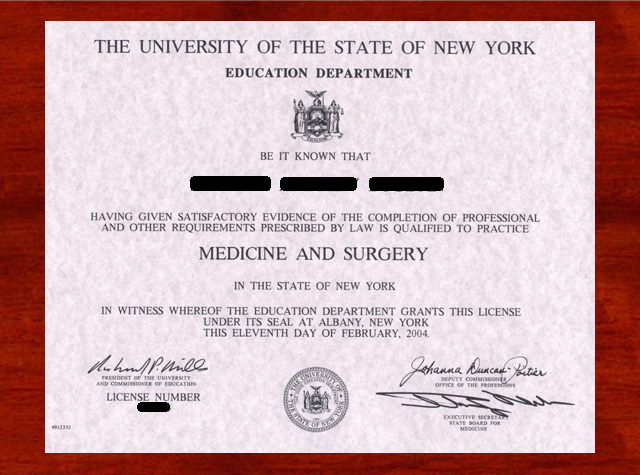 Our readers who follow politics know that members of Congress have battled in recent years with respect to revisions to the tax law. Specifically, estate, gift, and income taxes have been subject to adjustments. The purpose of this blog post is not to describe the specific changes made to these laws. The laws in this area are fluid and heavily influenced by politics, making them subject to change at almost any time. Because our readers cannot rely on consistency in the tax law, they must be mindful of their estate plans, beneficiary designations, and means by which title is held. The goal is so that intended recipients receive intended assets and that taxes are reduced as much as legally possible.
Our readers who follow politics know that members of Congress have battled in recent years with respect to revisions to the tax law. Specifically, estate, gift, and income taxes have been subject to adjustments. The purpose of this blog post is not to describe the specific changes made to these laws. The laws in this area are fluid and heavily influenced by politics, making them subject to change at almost any time. Because our readers cannot rely on consistency in the tax law, they must be mindful of their estate plans, beneficiary designations, and means by which title is held. The goal is so that intended recipients receive intended assets and that taxes are reduced as much as legally possible.
Further, while some of the tax laws have been revised at the Federal level, they have not been so adjusted in New York State. As such, estates valued at more than one million dollars are subject to New York State estate tax. In the New York metropolitan area, it is easy to accumulate one million dollars in assets, which could be deemed the value of real estate (net of the balance of a mortgage), life insurance policies that are considered to be revocable and other assets.
In any tax climate, estate planning will always be needed for the purpose of naming guardians for minor children, providing for beneficiaries with special needs such as those with physical or mental disabilities, identifying those persons desired to serve as executors and for establishing business succession plans. People with property in multiple states also require estate planning services, as different states may have their own estate tax, necessitating strategies to achieve tax reduction. In addition, same sex couples require estate planning, even if they reside in a state where they are considered legally married, to determine the allocation of assets in other states and to ensure that the spouse receives intended assets, rather than blood relatives.





 Bundled services have commonly been offered to purchasers of real estate in New York. For example, a real estate broker, wishing to enhance an affiliated title insurance company, has a program that encourages attorneys to refer their title business to the title company. A title agent provides tax reduction services as a benefit to its title customers. Mortgage providers may have an affiliation with a real estate broker. Purchasers may consider bundled services to be convenient and beneficial. They may be unfamiliar with the community in which they are purchasing or new to the process, giving them the tendency to trust recommendations of professionals that they have already selected. However, in some cases, bundled services predominantly benefit those entities to which the referral is made and do not necessarily result in better or less expensive service for the customer.
Bundled services have commonly been offered to purchasers of real estate in New York. For example, a real estate broker, wishing to enhance an affiliated title insurance company, has a program that encourages attorneys to refer their title business to the title company. A title agent provides tax reduction services as a benefit to its title customers. Mortgage providers may have an affiliation with a real estate broker. Purchasers may consider bundled services to be convenient and beneficial. They may be unfamiliar with the community in which they are purchasing or new to the process, giving them the tendency to trust recommendations of professionals that they have already selected. However, in some cases, bundled services predominantly benefit those entities to which the referral is made and do not necessarily result in better or less expensive service for the customer. A
A  We are pleased to announce that as of April 15, 2013, the law firm of
We are pleased to announce that as of April 15, 2013, the law firm of  Our firm often interacts with other professionals, such as doctors, architects, and accountants, in the course of our practice. This can happen in several ways. The first is when such services are needed by our clients in the course of litigation. For example, an architect may be needed to evaluate whether a property can be divided in separate parcels in a partition action. Courts will consider this separation to be the preferred remedy, so the expertise of an architect is often needed to provide their professional judgment on whether the property can be subdivided.
Our firm often interacts with other professionals, such as doctors, architects, and accountants, in the course of our practice. This can happen in several ways. The first is when such services are needed by our clients in the course of litigation. For example, an architect may be needed to evaluate whether a property can be divided in separate parcels in a partition action. Courts will consider this separation to be the preferred remedy, so the expertise of an architect is often needed to provide their professional judgment on whether the property can be subdivided.  This blog post contains a description of some of the standard substantive objections that a person may have to the admission of a Will to probate.
This blog post contains a description of some of the standard substantive objections that a person may have to the admission of a Will to probate.  Inquiries are often made of
Inquiries are often made of 
 For various reasons, not everyone dies has a Will that disposes of their property and identifies the person authorized to manage such distribution. In such a case, the surviving heirs should
For various reasons, not everyone dies has a Will that disposes of their property and identifies the person authorized to manage such distribution. In such a case, the surviving heirs should